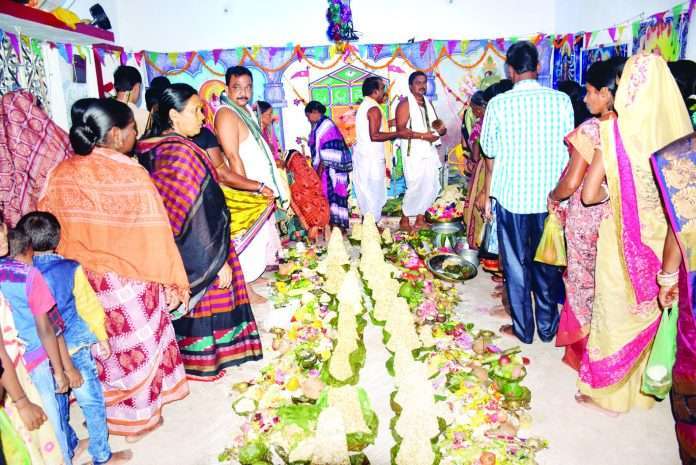Sociologists believe that society cannot be studied in isolation as the various parts of society (religion, economy, family, education, and polity) are interrelated. They study society as a whole. Hence religion and economy can be understood in relationship with each other. Religion refers to a belief on supernatural being and supernatural forces which regulates individuals’ behaviours. On the other hand economy is a system on which the production, consumption and distribution of goods and services takes place. These two elements of society are interrelated in many respects. Sometimes religion causes economic wastage and some other times it helps for economic development. It can be understood in a better way through some examples.
You might have heard people saying that the goddesses Samaleswari or Tarini appeared in their dreams and said to construct temples in a particular location of their villages. On the next day people from far places visit the location hiring vehicles to worship the deity. The person who had seen the deity in his dream, puts vermilion, flowers and scented sticks on a stone and worships it. Gradually villagers open shops there to sell worship materials and continue it as a means of livelihood.
In this case religion helped for economic development of villagers who opened the shops. Religion also causes economic wastage. For example- In Western part of OdishaDushera is celebrated in grandeur. This is one of the expensive months of the year. In this time married daughters visit their parents’ home for some days. They celebrate Bhaijuitian, a festival where sisters tie thread on brothers’ wrists for their wellbeing. After staying some days at parents’ home when the sisters leave for their in-laws, as mark of obligation parents’ offer clothes, sweets and fruits. If they have children, they are also provided with new clothes.
As compare to other months, Dushera is marked by numbers of festivals like Durga Puja, Gajalaxmi Puja, Biswakarma Puja and Puojiuntia(a festival for sons). Throughout this month people visit different festivals and shops to buy various things of their interest. If we see from sociological point of view people of Western Odisha spend huge amount of money in celebrating these festivals as a religious belief. At the same time in the state of Tamil Nadu people observe less festivals throughout the year and do not waste such amount of money on religious affairs.
During a study among the rural and urban barbers of Sambalpur district, an interesting fact on the relation of religion and economy came to light. It was found that urban barbers earn more than rural barbers. The reason is that people in the rural regions are more religious than in urban areas. In rural areas people prefer not to cut their hair and nails on days that they consider auspicious like, purnima(full moon), sankranti and other festive days. They also believe that cutting hair and nails on Monday, Thursday, and Saturday and on birthdays is a bad sign. In such a scenario the barbers get only a few days for their business which pushes them towards economic backwardness.
(The views expressed are the writer’s own.)

Prakash Bhue is pursuing his Ph.D in Sociology at Sambalpur University, Odisha. He is a Research Fellow under Odisha University Research and Innovation Incentivisation Plan (OURIIP). His articles have been published in various national and international journals. You can reach him at: [email protected]

